This Auckland mum studied the Spanish shoe-making industry before launching children’s shoe brand Pretty Brave
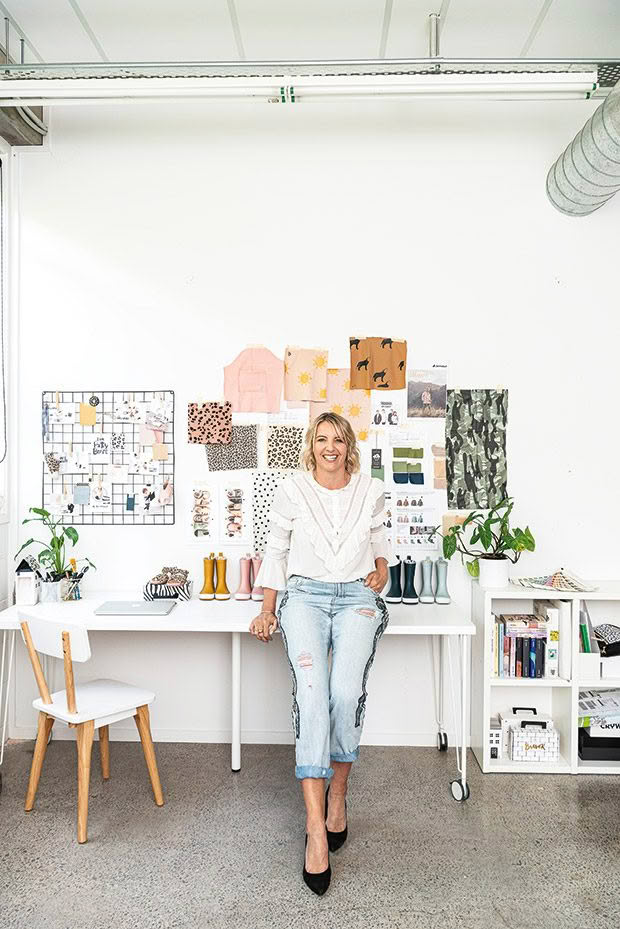
When Natalie Meldrum found herself living on the other side of the world, isolated from friends and family, she channeled her energy and creativity into a bold new venture.
Words: Leanne Moore Photos: Helen Bankers
Who: Natalie Meldrum, founder and director of Auckland-based brands Pretty Brave and Crywolf.
What: Pretty Brave produces footwear for children, and Crywolf creates children’s rainwear.
Where: Pretty Brave and Crywolf are international brands, available online and stocked in more than 250 stores worldwide.
Q: Why did you launch Pretty Brave?
The concept for Pretty Brave was born in Spain. My husband Tim is in the sailing industry, and he was offered a job in Valencia in 2010. We liked the idea of having an adventure, so we sold our Auckland house, packed up our lives and moved to Spain with our eight-month-old son Blake and two-year-old daughter Skye. We stayed for five years and I used this time to rethink my career path. My background is graphic design, but I wanted to bring something back to New Zealand that Spaniards did well. I could see a gap in the market for fashion-inspired, quality children’s footwear, so I set about making it happen.
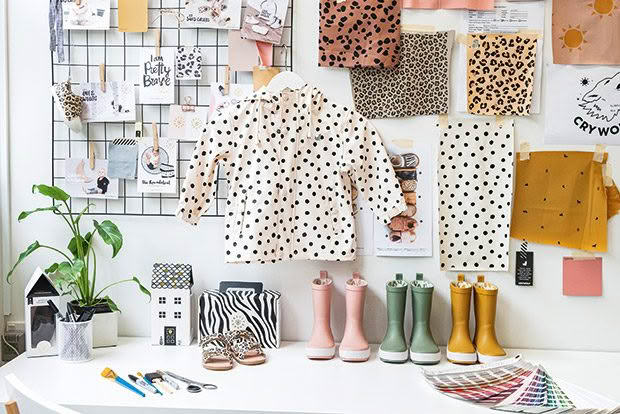
Having a commercial space for the business allows her to get some separation and balance between work and home life.
I’d pack the kids into the car and drive south to the heart of the shoe-making industry and door knock. In my limited Spanish, I’d introduce myself as a girl from New Zealand who wanted to make baby shoes. From there, the journey took me to Morocco, Denmark and into Asia, where I set up relationships with manufacturers who still make my shoes today. We moved back to New Zealand at the end of 2014, and Pretty Brave was launched in February 2015.
Q: What is it about your work that gets you excited?
For me, getting away from the studio and into remote locations gets me into the creative zone. I always head off somewhere to be alone. This year I stayed in a beautiful historic hotel in the Waitākere Ranges. I also get excited when the samples from each collection arrive. It’s like Christmas. I love seeing my ideas take shape. And I still get a kick when I see someone wearing Pretty Brave or Crywolf.
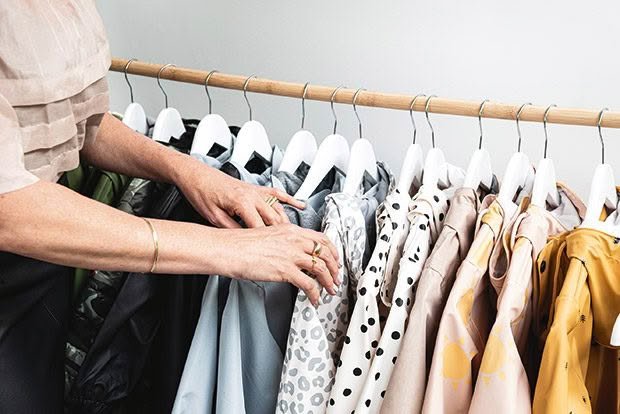
The ethos behind Crywolf is to get children outside by providing fun clothing. “Who doesn’t want to get kids off their devices and into the greatest playground there is?”
Q: Why did you launch your second brand, Crywolf?
We were living in Bermuda at the time for the America’s Cup as Tim was with Team New Zealand. Pretty Brave had been going for a couple of years and I’d built a great team, so I was running the business remotely. In between cheering on the yacht racing and enjoying Bermuda’s island lifestyle, I started sketching concepts for a collection of high-quality children’s rainwear where I knew there was a gap in the market. I showed friends some sample jackets, and they loved them. It was a big call to set up a whole second brand, but they encouraged me to go for it. Crywolf launched in February 2018.
Q: What qualities do you need to start a business?
Resilience, determination, a strong work ethic and belief in yourself.
Q: Do you need to be a risk-taker?
Yes, but a calculated risk-taker. Apart from the initial investment, Pretty Brave was self-funding for the first few years. I only ordered what I could afford. After the brand became established, I had the confidence to place much bigger orders.
Q: What was your big break?
In my first year, I exhibited at a trade show in Australia. Our stand was so crowded, people could barely move. We picked up more than 100 new stores. It was confirmation that I was onto something special. That success also allowed me to be selective with the stores I chose. I went with the ones that share our aesthetic and brand vision.
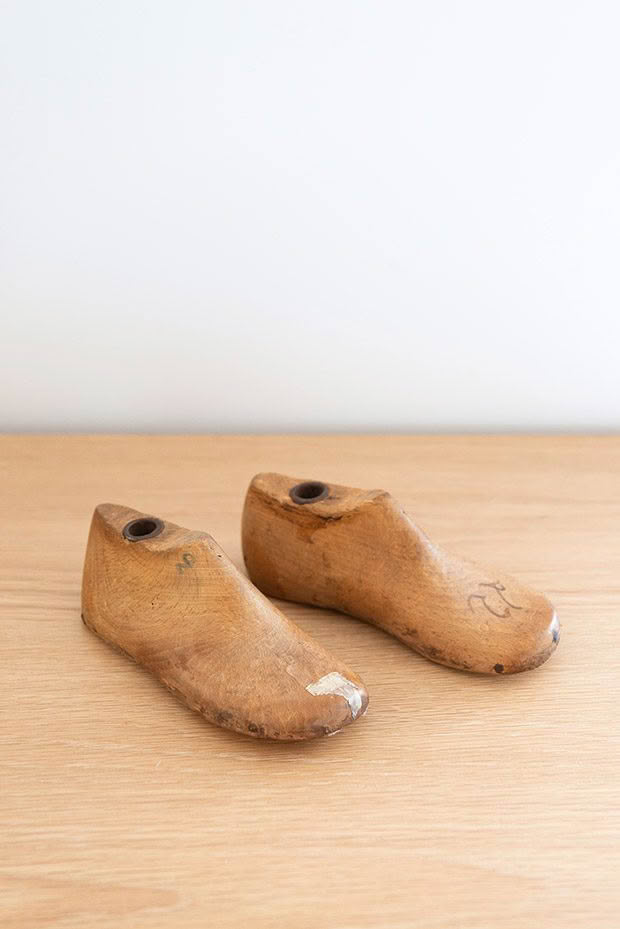
This pair of vintage shoe lasts were discovered by Natalie at a tiny market in the south of Spain. “They are symbolic because they represent the beginning of my journey to set up the business.”
Q: What was the biggest hurdle you overcame in the early years?
The first few years of Pretty Brave were the honeymoon phase. The overheads were low, and the growth was phenomenal. The first major hurdle was making the transition out of the family home. I knew it was time to get commercial premises when the delivery trucks were so large they could barely make it up the driveway and our two-storey house was filled with product. The only rooms I refused to use as a warehouse were the kids’ bedrooms.
Q: Did you have any moments of self-doubt?
No, I always believed I could do it. Whenever something goes wrong I don’t dwell on it. I move quickly to problem-solving mode. You have to make the most of the good and the bad. Some of the biggest setbacks have enabled us to grow as a brand. In a way, it’s no different from raising children – they need to learn to fall before they can walk. The name Pretty Brave comes from when we uprooted our children and threw them into life in a Spanish town, where no one spoke English. My children are my inspiration. When we were in Valencia, I often said to them, “You are pretty brave.”
Q: Have you experienced burnout?
This year was a big one. As well as juggling the two brands, my husband and I designed and project-managed the renovation of our house. I didn’t quite hit burn-out, but working at that level is not sustainable. My mum, Robyn Pardy, is a complete superstar who gives me a huge amount of support, for which I am eternally grateful. We have now moved back home after renting during the renovation, and things are settling down.
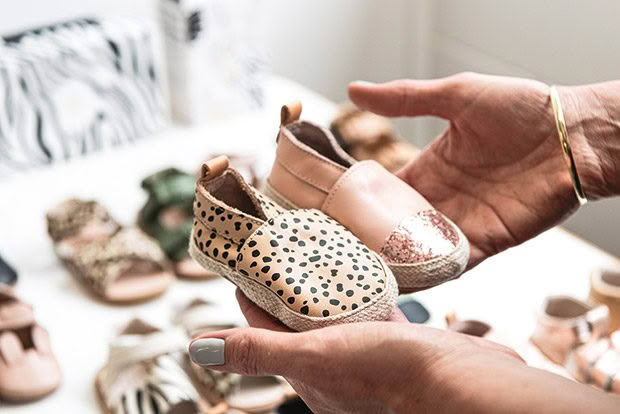
While living in Valencia, Natalie noticed how much Spaniards love footwear. “Even the nuns matched their shoes with their belts.”
Q: Have you ever seriously considered giving up?
There have been times when I’ve wondered if the hard work is worth it. But then I take a step back and look at what I have created. Being a mum and having my own business means there is a lot of work chaos mixed in with home life, but I am usually there for my kids when they come home from school and at the end of the day. This makes it all worth it.
Q: Have you ever had a business mentor?
I have had a mix of mentors along the journey, from informal catch-ups with someone who has been down a similar path, through to paid mentors in areas such as sales and finance. Having your own business is like going to university 20 times over. You have to have such a deep understanding of so many aspects of business.
For me, I found that as the business progressed, the focus has shifted to a more strategic level. It is all about stepping outside of the day-to-day and working on planning. There is a lot of support out there for small businesses, but you have to be prepared to reach out for it and then take the required action. You are the one who has to make the big calls.
Q: How do you take care of your mental health and physical wellness?
I love going to gym when I can. It is the perfect way to burn off the angst from work. I am an early bird and a night owl. I drink loads of coffee and probably too much wine, but I do try and balance it with exercise and positive thinking. Quality time with my family is my happy place, and we have just renovated a retro caravan that we love to get away in. The kids have been to about 25 countries, but we are finally rediscovering our own New Zealand backyard.
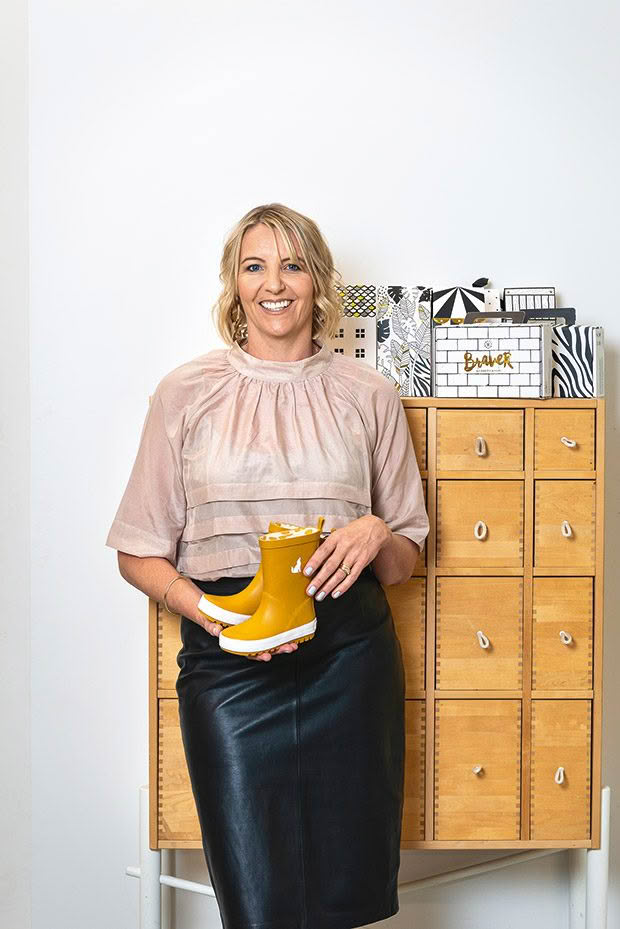
Natalie works with podiatrists to ensure her shoes are designed for growing feet. “We test the product on children and spend time talking to parents to gain a deep understanding of what our customers want.”
Q: What fills you with new energy for work?
My dad, Fred Janssen, has given me an electric piano. It is my escape and my therapy. I am trying to work less at the weekend to recharge and spend time with my kids. My perfect Saturday morning is a combat class with friends, then home for breakfast with my family. Later we might all go on an outdoor mission together, but just being at home is relaxing for me.
Q: How do you define success?
Being creatively fulfilled, surrounding myself with a team of amazing people who enjoy being part of the journey, making customers happy with quality products and being able to sleep at night confident in the direction of the businesses.
Q: Life lessons that have helped your business?
My husband reminds me, “If it were easy, everyone would do it.” This gives me the confidence to keep evolving, especially when the going gets tough. Having a business is a huge amount of hard work, but I feel proud that I have created the life I wanted for my family. It is important to me that I am an inspiration to my kids, so they believe that with hard work they can be the best they can be.
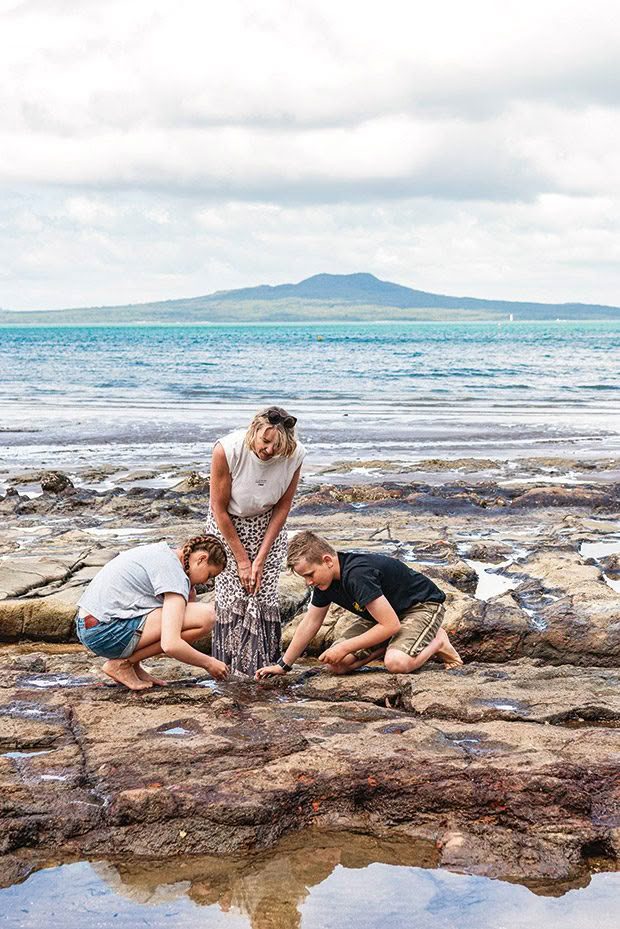
Natalie grew up in Castor Bay, so the local beach has been part of her life since she was young. Now her children, Skye and Blake, are enjoying a similar lifestyle. “Castor Bay is a real community hub, and in summer, we always bump into people we know. It’s very social. The beach has a blend of everything — a fun pontoon for the kids, lots of grass for summer cricket and beautiful pōhutakawas to picnic under.”
Q: What is your vision?
For Pretty Brave and Crywolf to be global household brands, supplying high-performing products that our little customers and their families love. I planned for this type of growth from the start, investing in the best systems and practices, partnering with amazing manufacturers, and ensuring everything was scalable. Pretty Brave was seen as a strong brand from the outset, and Crywolf leveraged off that success. We are now stocked in about 250 stores around the world, with New Zealand and Australia being our biggest markets. We also have agents in Canada and the United States.
Q: Does your work make you happy?
Yes. All my experiences have led me to this point. I used to say I am very lucky but, actually, luck doesn’t have much to do with it. It takes dedication and effort. Now I always say that I’m grateful for the life I have.
Love this story? Subscribe now!
 This article first appeared in NZ Life & Leisure Magazine.
This article first appeared in NZ Life & Leisure Magazine.
